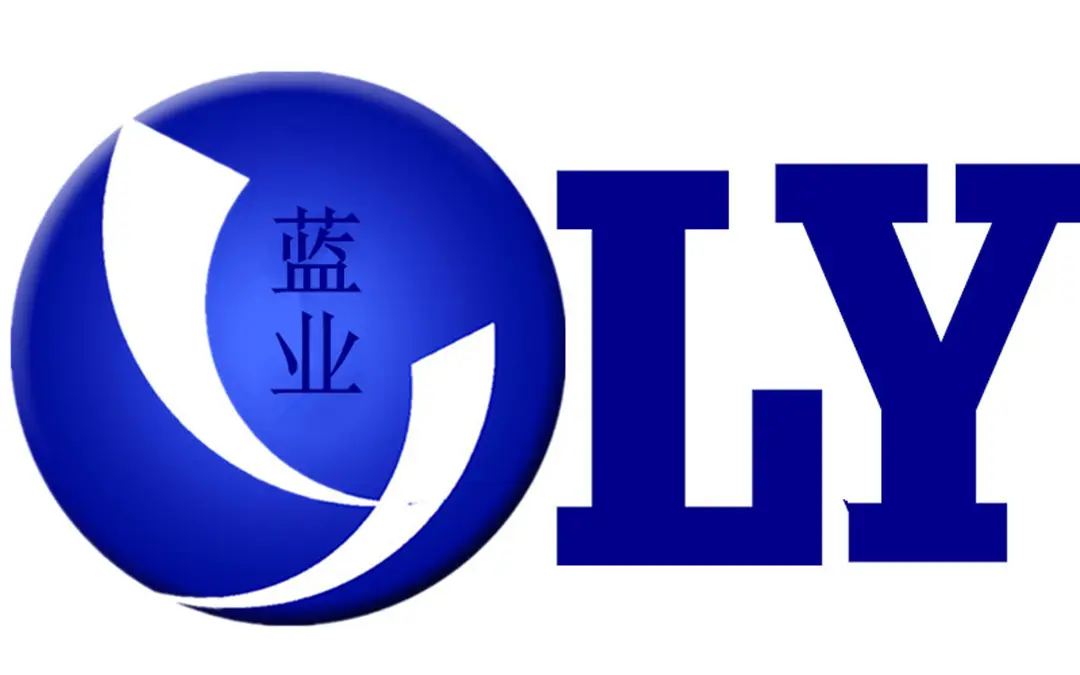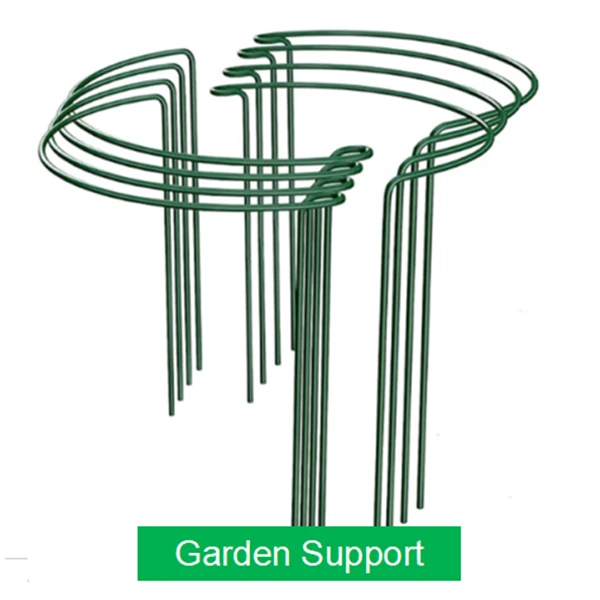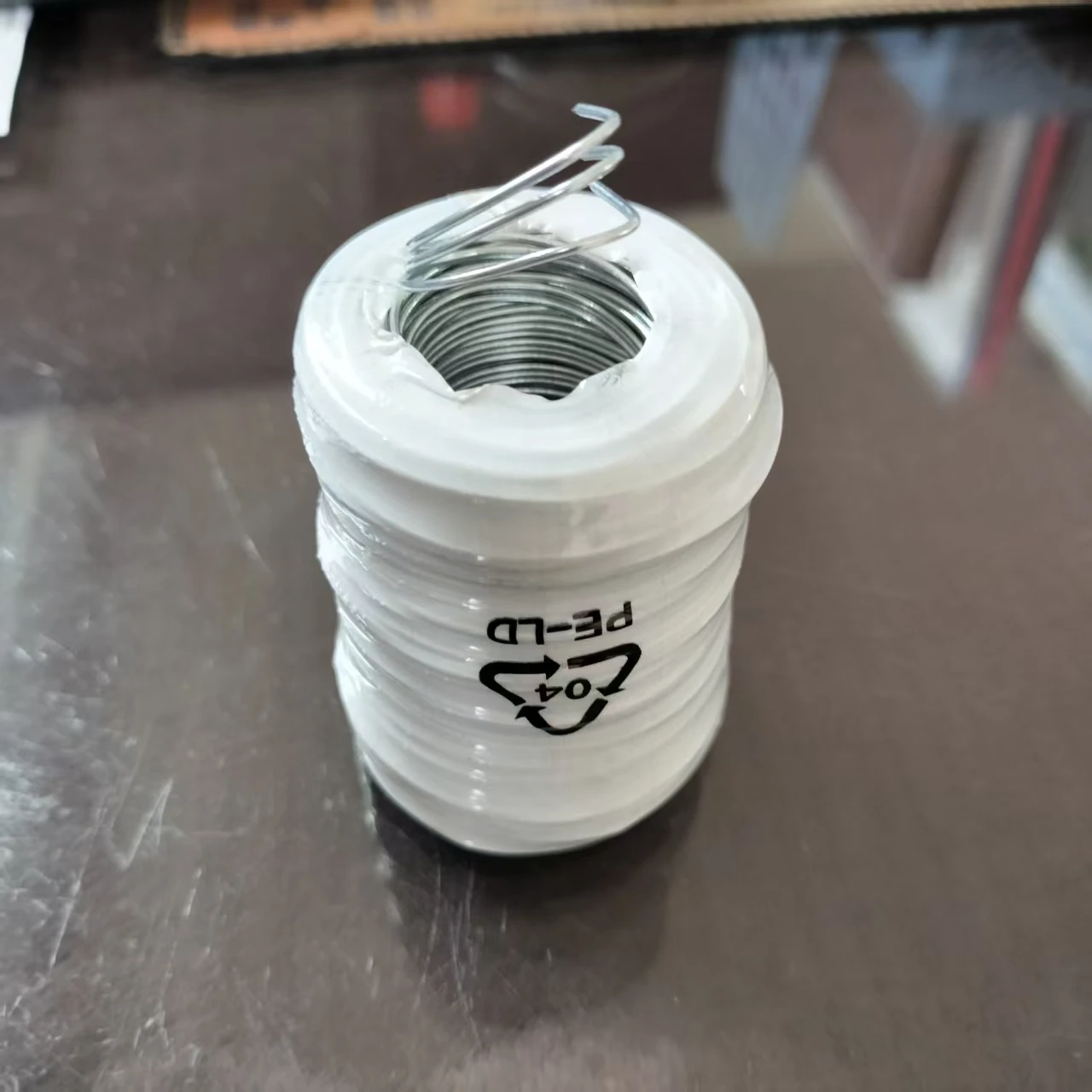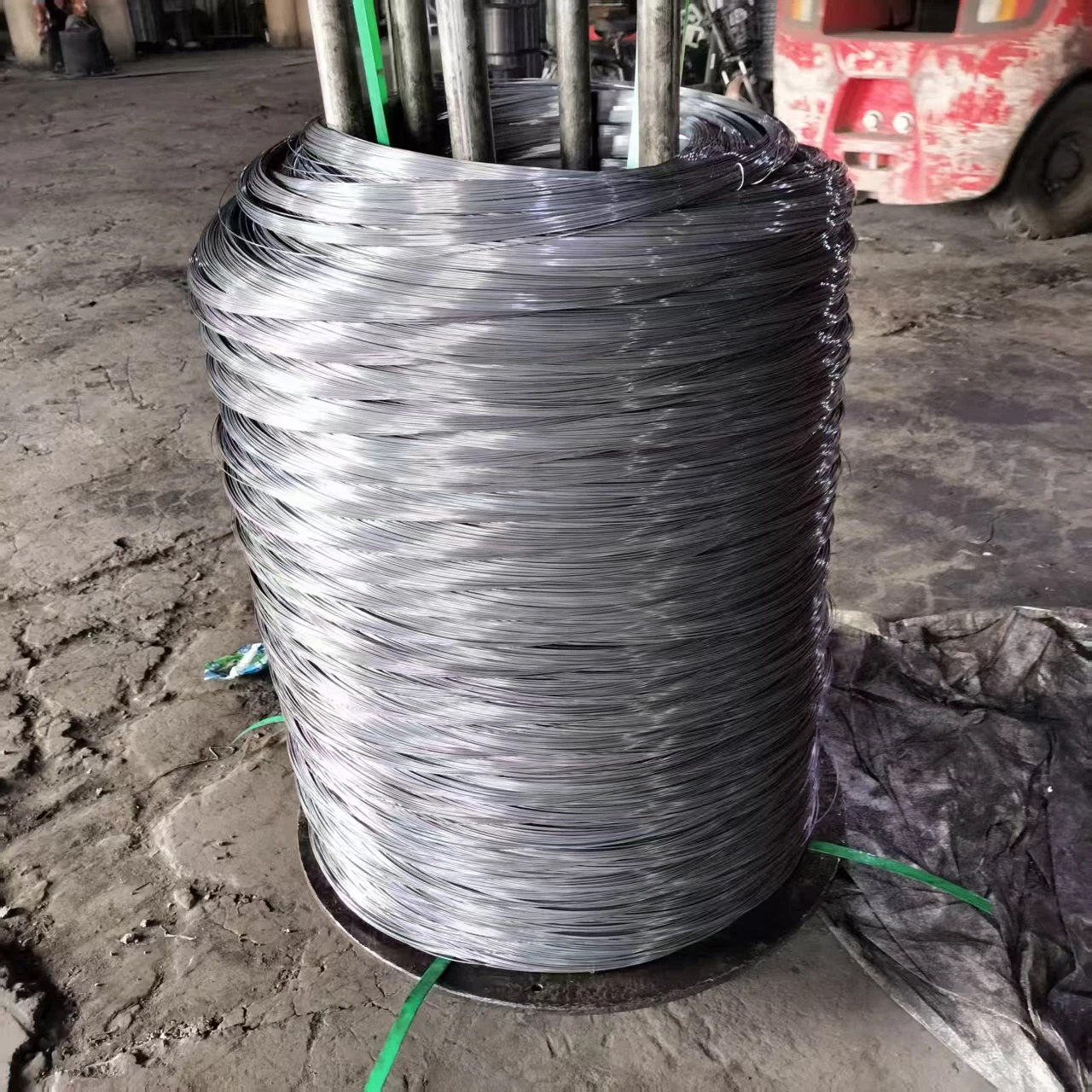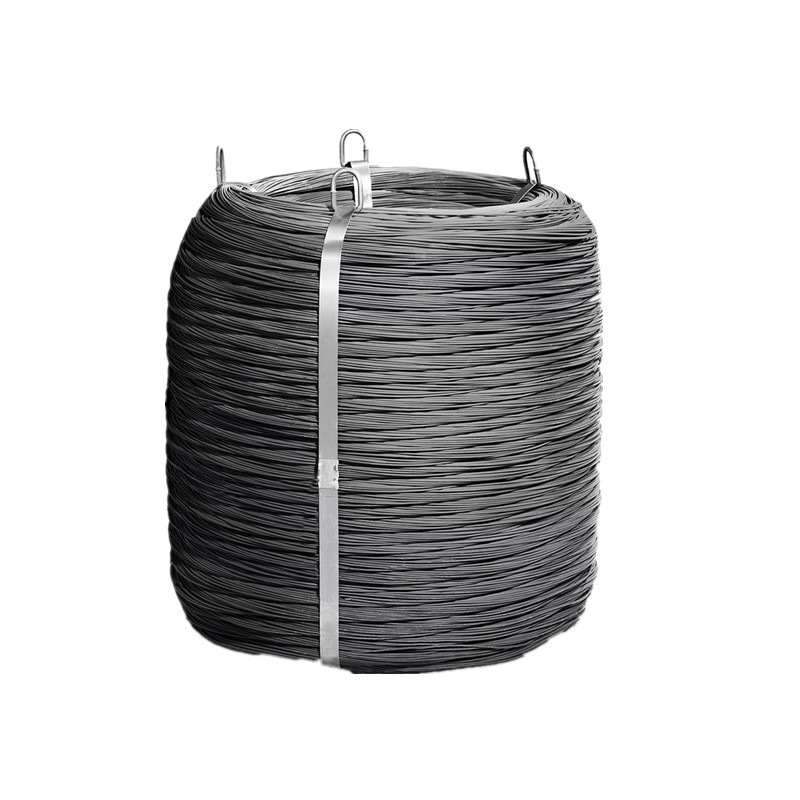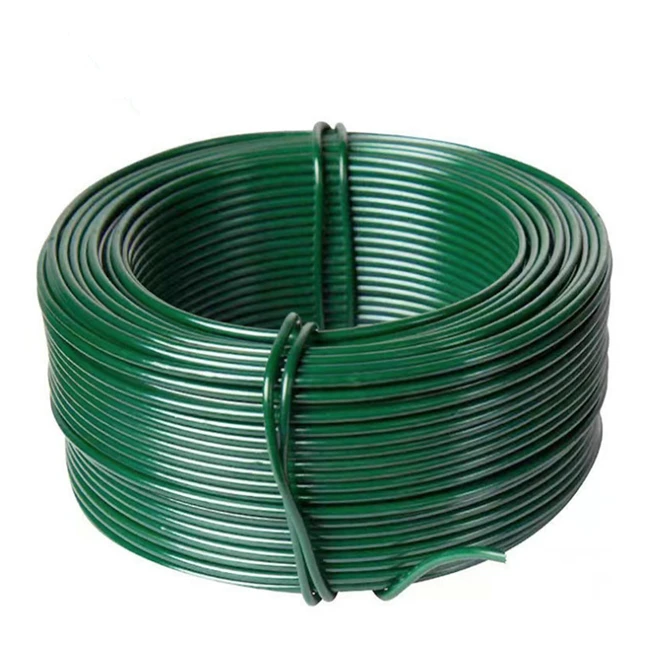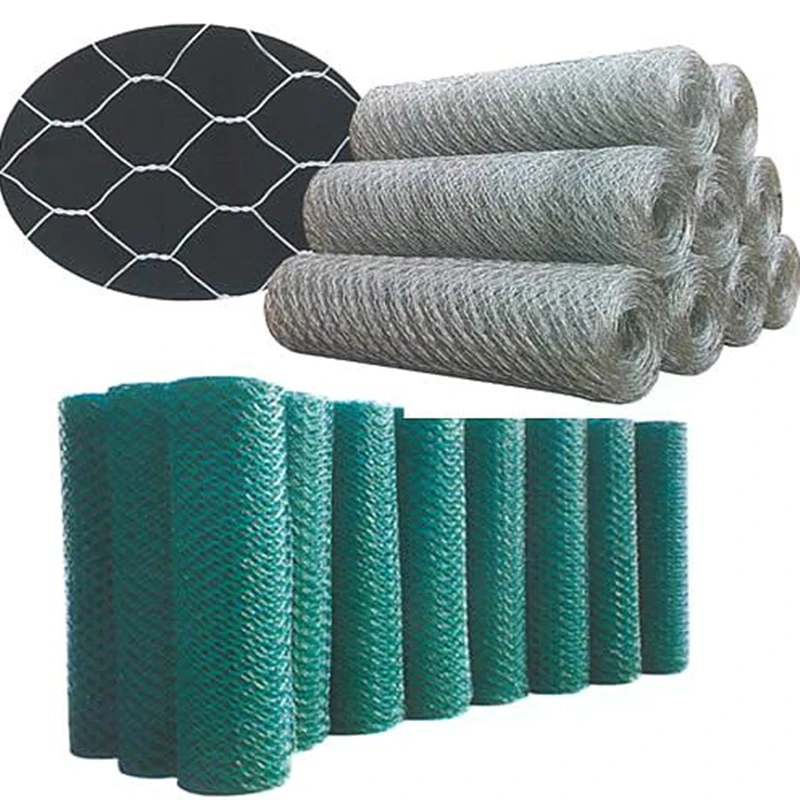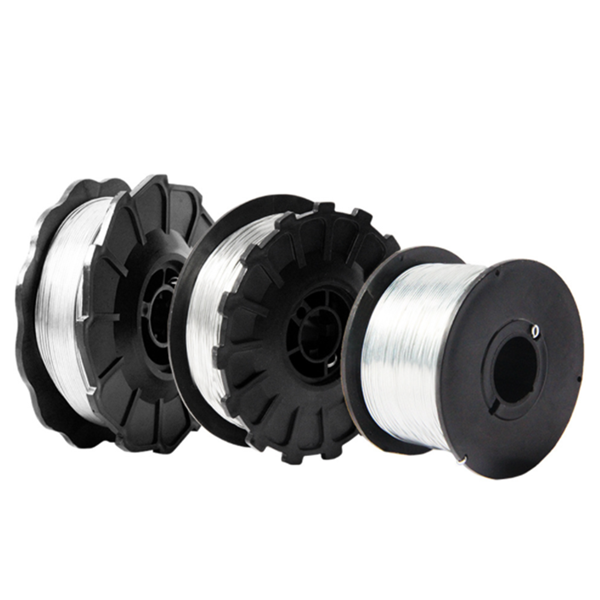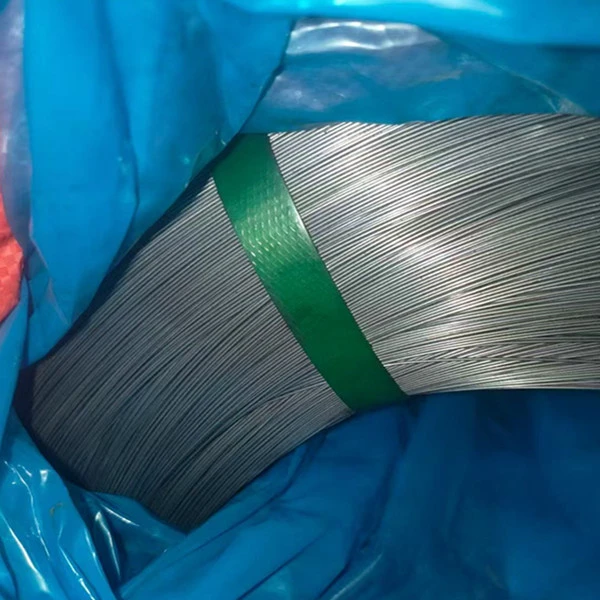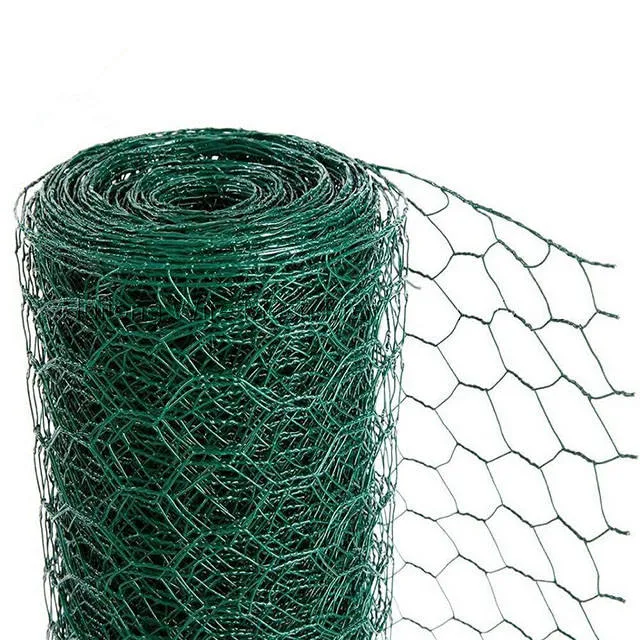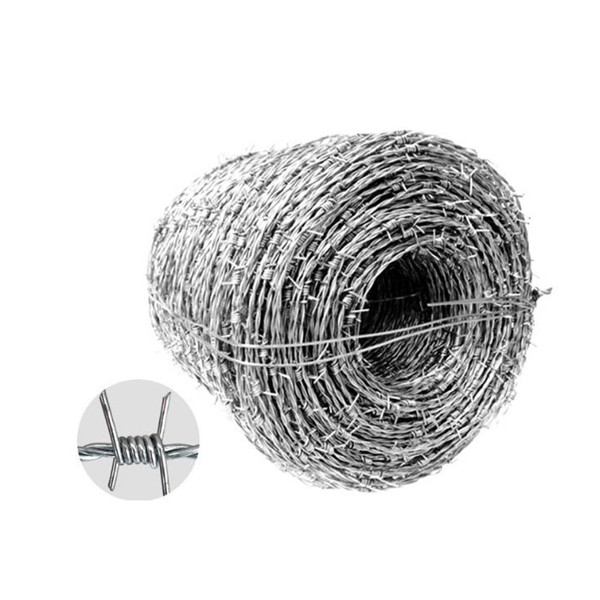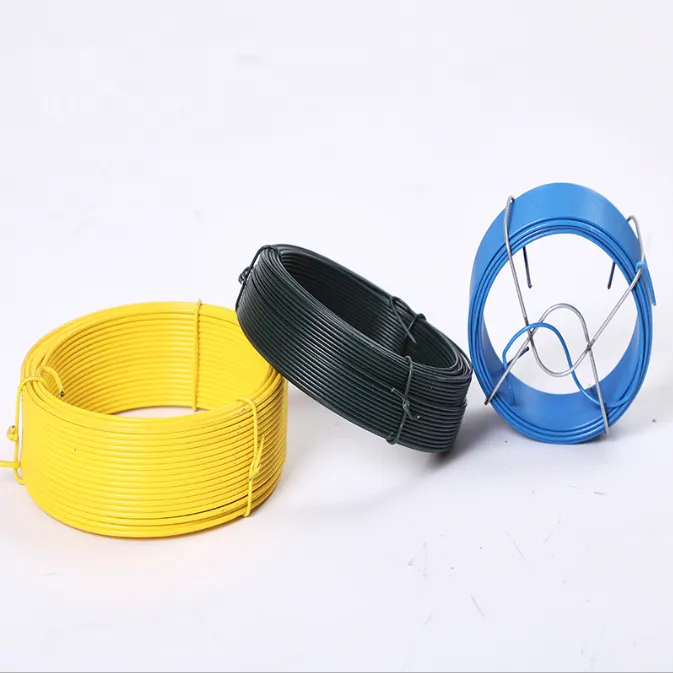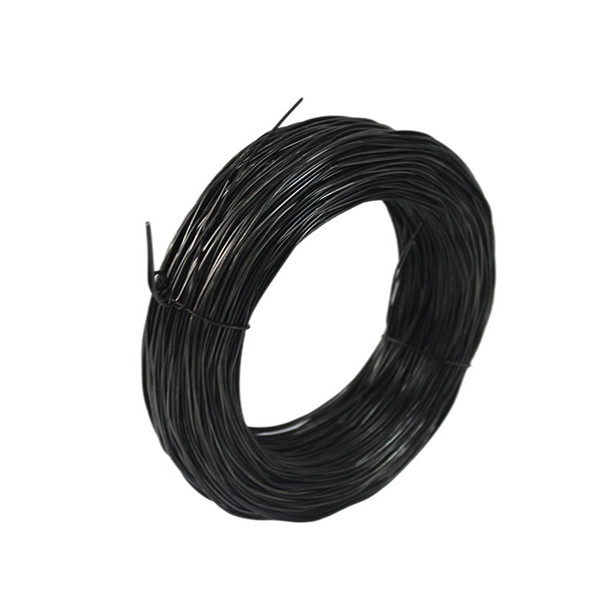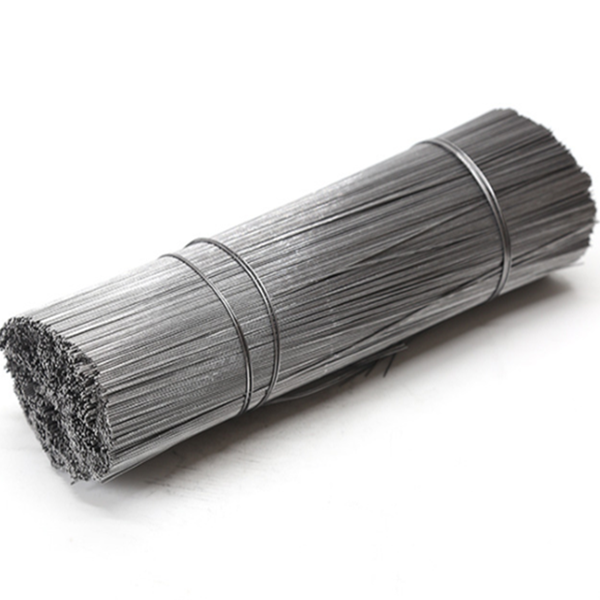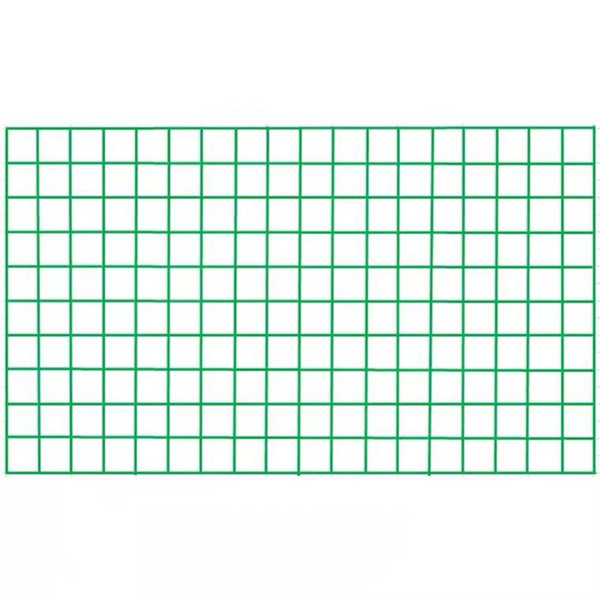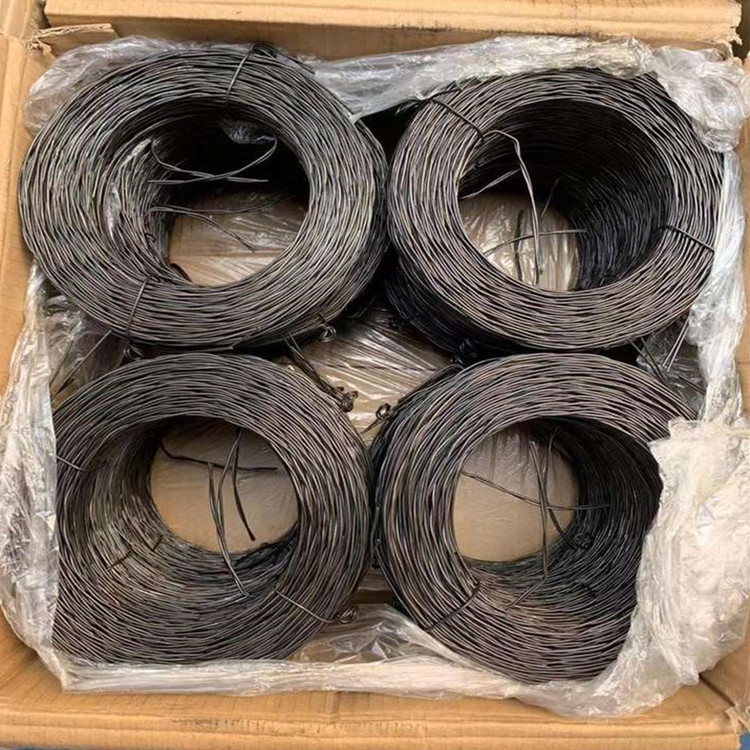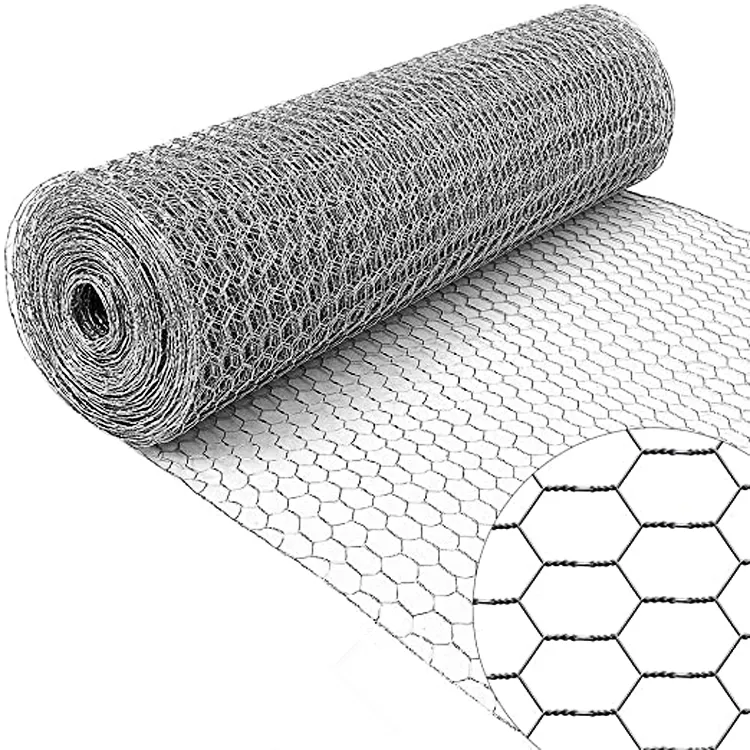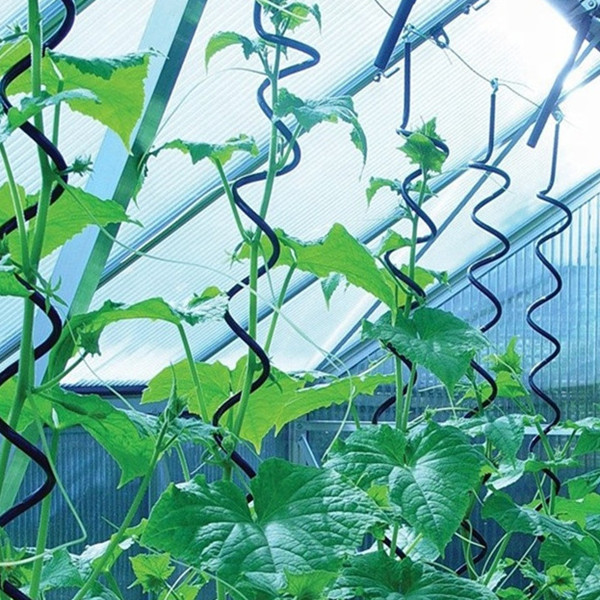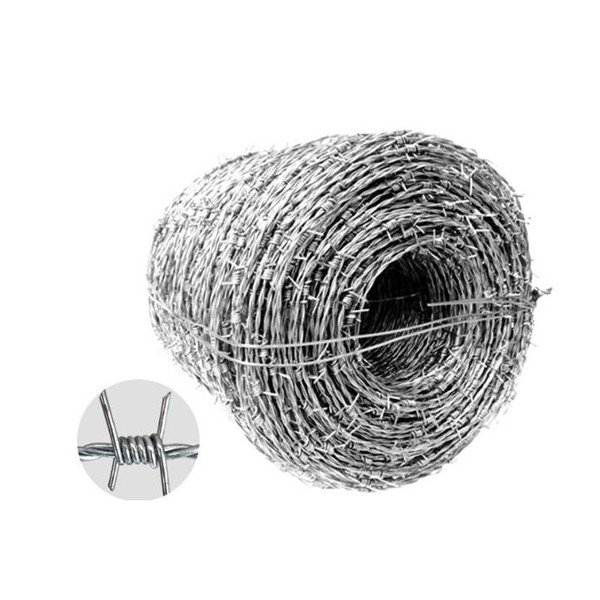Understanding Black Annealed Wire: A Core Component in Industrial Applications
In the vast and interconnected world of industrial materials, black annealed wire stands as an indispensable product, highly valued for its unique combination of ductility, malleability, and robust tensile strength. This versatile metal wire, often referenced interchangeably as binding wire, baling wire, or tie wire, undergoes a meticulous thermal treatment process that profoundly enhances its mechanical properties, rendering it exceptionally suitable for a diverse array of applications across numerous demanding sectors. Its distinct black finish, which is a direct outcome of the controlled annealing process, not only visually sets it apart but also serves as an indicator of its superior workability and resistance to cracking under stress. Leading manufacturers, ranging from expansive steel wire factory operations to specialized baling wire manufacturers, consistently produce this critical material to comply with the most stringent global quality and performance benchmarks, including various ISO and ANSI standards. The persistent demand for soft black iron wire and annealed steel wire remains robust within industries that necessitate secure fastening, efficient bundling, or reliable tying solutions where paramount importance is placed on flexibility, ease of manipulation, and exceptional resistance to premature breakage. Comprehending what is black annealed wire involves a deep dive into its precise manufacturing methodology and its pivotal, pervasive role in operations spanning from large-scale construction projects to intricate recycling facilities, emphasizing its fundamental contribution to operational efficiency. This foundational understanding is absolutely critical for B2B decision-makers and technical procurement specialists who are in pursuit of consistently reliable and cost-effective wire solutions capable of delivering unwavering performance even under the most rigorous conditions. The global market for steel & wire products is notably competitive, underscoring the imperative of strategic sourcing from reputable steel wire suppliers and black annealed wire suppliers who can definitively guarantee product integrity, material traceability, and strict adherence to international specifications, ensuring that the entire supply chain maintains optimal performance and quality.
The inherent beneficial properties of black annealed wire, primarily derived from its meticulously controlled low carbon steel composition and the subsequent annealing treatment, contribute directly to its superior bending capabilities without succumbing to fracturing, which is an absolutely critical attribute in diverse applications such as concrete reinforcement tying wire. Unlike its hardened, brittle counterparts, the specialized annealing process effectively relieves internal stresses that accumulate during the wire drawing stages, resulting in a finished product that can be effortlessly manipulated by both manual labor and sophisticated automated machinery. This ease of manipulation significantly reduces labor time, dramatically enhances operational efficiency, and consequently drives down overall project costs, making it a distinctly preferred choice over many other metal wire types for tasks that demand swift, secure, and resilient ties. The wire manufacturing industry continuously strives for technological advancements, with many progressive black annealed wire factory operations focusing on ingeniously optimizing the design of their rewound wire coils to ensure seamless dispensing and meticulously minimize frustrating tangling, which is particularly vital for integration with high-speed automated tying machines. For judicious procurement professionals, key considerations extend far beyond merely the black steel wire price; they must also encompass the unwavering consistency in tensile strength, elongation, and precise coil weight, as these parameters directly influence project timelines, material utilization, and ultimately, the minimization of material waste. The expanding global market for annealed iron wire and black iron wire undeniably highlights the increasing demand for advanced materials that offer a harmonious blend of structural integrity, exceptional durability, and unparalleled ease of use across a myriad of industrial scenarios. As a premier black annealed wire supplier, the unwavering commitment to delivering consistent, certified quality and maintaining robust, highly efficient supply chains is absolutely essential for cultivating deep-seated trust and securing enduring, mutually beneficial partnerships with esteemed clients across the vital construction, dynamic agricultural, and burgeoning recycling sectors. This commitment ensures that every meticulously produced batch of black annealed baling wire or black annealed binding wire not only meets but consistently exceeds the exceptionally demanding performance requirements of discerning end-users, solidifying its reputation as a cornerstone material.
The Manufacturing Process: From Raw Material to Precision Rewound Coils
The sophisticated production of black annealed wire is an intricate process that meticulously transforms high-quality, hot-rolled low-carbon steel rod into a product renowned for its exceptional ductility and flexibility, a journey underpinned by stringent quality control at every stage. The process typically commences with the scrupulous selection of raw material—premium-grade steel rods, which are initially subjected to a comprehensive descaling process. This can be either a mechanical descaling, utilizing specialized brushes and bending forces, or a chemical descaling process, employing acid baths, specifically designed to effectively remove surface impurities, rust, and mill scale. This critical preparatory step ensures a clean surface, which is absolutely essential for preventing die damage and ensuring a superior surface finish in subsequent stages. Following descaling, the rods are rigorously drawn through a meticulously engineered series of progressively smaller dies in a cold drawing operation. This precise cold drawing method incrementally reduces the wire's diameter, concurrently increasing its tensile strength and hardness. Multiple drawing passes are often required to achieve the exact desired wire gauge, such as the widely used 16 gauge tie wire, with immense attention dedicated to continuous die maintenance, precise lubrication application, and real-time diameter monitoring to ensure a consistently smooth surface finish and uniform wire diameter throughout the entire length of the production coil. The significant internal stresses and inherent brittleness induced within the wire during this intense cold drawing process necessitate the subsequent, absolutely critical annealing stage to restore its desired properties.
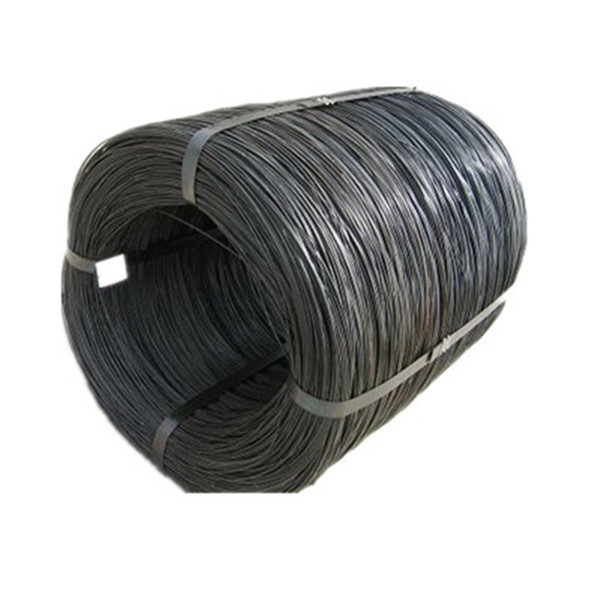
Annealing represents the pivotal heat treatment phase where the previously drawn wire is precisely heated to a predetermined temperature, typically above its recrystallization point, and then subjected to a meticulously controlled, slow cooling regimen. This carefully managed thermal cycle fundamentally re-engineers the wire's microstructure, effectively relieving all internal stresses accumulated from the drawing process, significantly increasing its ductility, and dramatically improving its overall workability, which defines what is annealed wire. For the production of black annealed wire, this is often executed as a batch annealing process within a controlled atmosphere furnace, which specifically prevents undesirable oxidation and contributes directly to the formation of its characteristic black oxide layer, providing a degree of corrosion resistance in mild environments. The precise temperature profiles, along with the exact holding time during the annealing sequence, are meticulously controlled parameters, rigorously monitored to achieve the desired optimal softness and specific elongation properties without unduly compromising the critical tensile strength. Post-annealing, the now soft annealed iron wire is thoroughly cleaned and meticulously prepared for the final coiling process. Many advanced manufacturers, particularly those operating state-of-the-art black annealed wire factory facilities, leverage highly sophisticated rewinding machines to create uniform, tension-controlled wire coils, which are engineered to ensure exceptionally smooth payoff and minimize tangling during automated application. Each finished coil undergoes stringent, multi-point quality control assessments, including rigorous tests for tensile strength, precise elongation percentages, and unwavering wire gauge conformity, all in strict adherence to international quality standards such as ISO 9001 for comprehensive quality management systems, as well as relevant ASTM (e.g., ASTM A853 for carbon steel wire) and DIN standards for material properties. This uncompromising commitment to rigorous testing and adherence to recognized industry benchmarks guarantees that the final product, whether destined as black annealed baling wire for agriculture or concrete reinforcement tying wire for construction, consistently meets and often exceeds the most demanding performance requirements of diverse industrial applications, promising an extended service life and reliable performance.
Technical Specifications, Performance Metrics, and Data Visualization
The performance efficacy of black annealed wire is precisely quantified by a comprehensive array of technical specifications that are absolutely critical for astute procurement professionals and discerning engineers navigating complex industrial requirements. Key operational parameters consistently evaluated include the wire gauge (which dictates its precise diameter), its ultimate tensile strength, the percentage of elongation before fracture, and the practical coil weight. Wire gauge, typically measured in globally recognized units such as American Wire Gauge (AWG) or metric millimeters, directly determines the wire's thickness and, consequently, its suitability for highly specific applications. For example, a 16 gauge tie wire is universally preferred for delicate but strong rebar tying operations, whereas significantly thicker gauges are specifically engineered and utilized for heavy-duty baling wire applications where immense compression forces are involved. Tensile strength, meticulously measured in units of MegaPascals (MPa) or pounds per square inch (PSI), serves as a crucial indicator of the maximum stress the wire can competently withstand before reaching its breaking point, thereby directly reflecting its inherent robustness and structural integrity. Elongation, precisely expressed as a percentage of its original length, quantifies the wire's remarkable ability to stretch and deform plastically before fracturing, a characteristic directly correlating to its ductility and unparalleled ease of handling during demanding tying or baling operations. A consistently higher elongation percentage unequivocally signifies superior flexibility and a significantly reduced risk of sudden snapping under intense operational stress, which is a paramount attribute for critical products like black annealed binding wire where reliability is non-negotiable. Furthermore, factors such as uniform coil dimensions, consistent lubricity, and the absence of surface defects all contribute to the wire's overall performance and user satisfaction, ensuring smooth dispensing and minimal downtime in automated systems, ultimately influencing the overall black steel wire price.
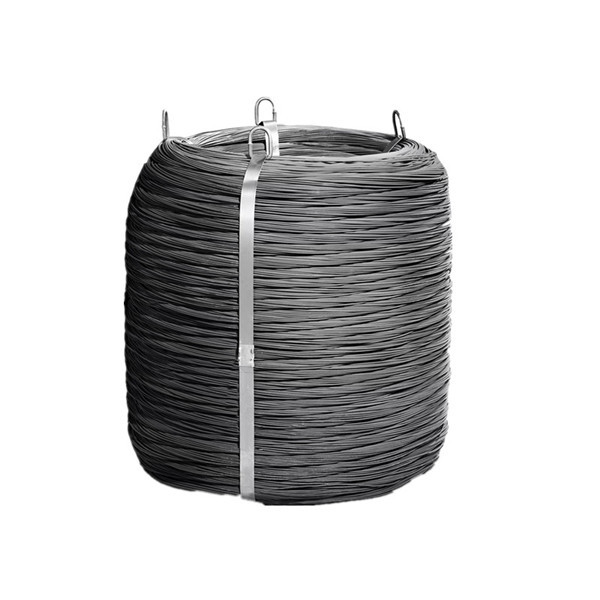
Beyond these intrinsic material properties, the practical considerations of coil weight and specialized packaging are equally significant logistical and operational factors that directly impact efficiency and cost-effectiveness. Black annealed rewound wire coils are ingeniously designed for highly efficient and trouble-free dispensing, with standard coil weights typically ranging from convenient 25 lbs (approximately 11.3 kg) for manual applications to robust hundreds of kilograms for large-scale industrial and automated machinery. A thorough understanding and precise specification of these technical details are absolutely vital for ensuring seamless compatibility with existing machinery and for meticulously optimizing material consumption, which directly influences the overall steel wire price per ton. Authoritative sourcing for premium black annealed wire almost invariably involves diligent engagement with reputable suppliers who possess the capability to provide detailed material certifications, thereby unequivocally ensuring strict compliance with recognized international industry standards such as ASTM A853 (Standard Specification for Steel Wire, Carbon, for General Use) or equivalent ISO standards. This unwavering adherence to comprehensively documented quality control procedures provides an unparalleled assurance of product consistency, material traceability, and inherent reliability, which are the quintessential hallmarks of dependable black annealed wire suppliers and black annealed wire factory operations committed to excellence. To aid in informed decision-making and provide a clear comparative overview, the table below presents typical specifications for commonly utilized gauges of black annealed wire, encapsulating critical parameters that industrial buyers prioritize when selecting materials for their diverse applications, from tie wire 16 price considerations to high-volume baling wire per ton steel requirements.
Typical Black Annealed Wire Specifications
Versatile Applications, Industry Advantages, and Case Studies
The inherent versatility of black annealed wire solidifies its status as a foundational staple across an extensive spectrum of industrial sectors, consistently offering distinct and quantifiable advantages that directly translate into significant operational efficiencies and substantial cost savings for businesses. Within the dynamic construction industry, particularly for robust concrete reinforcement, the deployment of black annealed tie wire is unequivocally ubiquitous. Its remarkable softness and unparalleled ductility empower construction professionals to swiftly and securely tie intricate rebar frameworks, which is absolutely critical for ensuring the structural integrity of foundations and vertical structures prior to the monumental concrete pouring stage. This unparalleled ease of manipulation dramatically reduces the intensive labor time typically associated with stiffer, less pliable wire alternatives, a factor of immense importance for effectively managing project timelines, controlling escalating labor costs, and directly impacting the overall tie wire 16 price and comprehensive project budget. Similarly, across the vast and vital agricultural sector, black baling wire is an absolutely essential component for efficiently bundling voluminous quantities of hay, straw, and other crucial fodder materials. The superior strength and exceptional flexibility of black annealed baling wire guarantee the creation of compact, remarkably secure bales, which in turn minimizes spoilage, dramatically facilitates efficient storage, and streamlines transportation logistics for agricultural enterprises. Specialised baling wire manufacturers have painstakingly refined their production processes to meet the extraordinarily high volume demands and consistently rigorous quality specifications of this industry, thereby underscoring the critical importance of procuring consistently reliable wire coils from trusted sources. These applications exemplify the core utility and economic benefits derived from integrating high-quality annealed black wire into operational workflows, contributing to overall productivity and resource optimization.
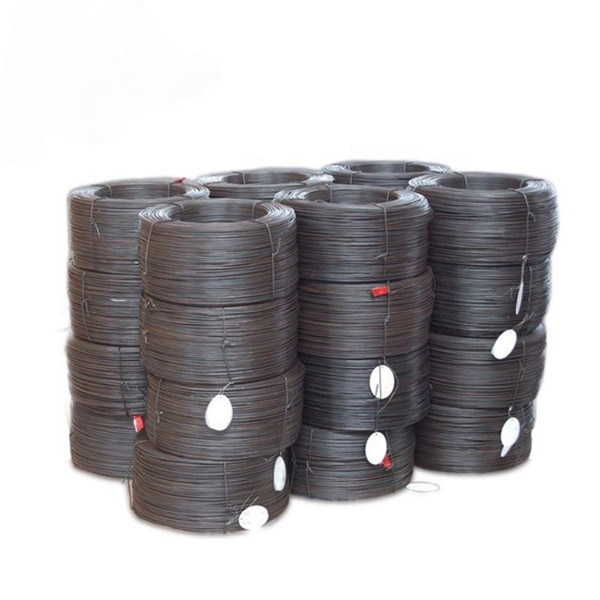
Beyond these foundational applications, black annealed wire assumes an equally critical role within the rapidly expanding recycling industry, where it is extensively employed as specialized packing wire for efficiently compacting and securely bundling a diverse range of recyclable materials, including but not limited to cardboard, various plastics, and ferrous metals. The wire's intrinsically high tensile strength and exceptional resistance to premature breakage are absolutely essential for forming dense, structurally stable bales, which profoundly optimizes both storage space utilization and transportation logistics for bustling recycling plants globally. Furthermore, in the broader domains of general packaging and stringent industrial binding, both annealed binding wire and black annealed binding wire are pervasively utilized for securing countless packages, methodically reinforcing vulnerable cartons, and securely bundling an extensive array of industrial components. The inherent superior quality of soft black iron wire ensures that the wire can be twisted and cinched incredibly tightly without causing any undesirable damage to the bound items, thereby providing an exceptionally reliable, highly effective, and remarkably cost-efficient binding solution that consistently performs under pressure. A compelling service case involves a major waste management company that transitioned to using a specific black annealed steel wire for their balers, reporting a 15% reduction in wire breakages and a 10% increase in bale density, directly correlating to significant savings in operational costs and transport. The judicious selection of a highly competent black annealed wire supplier is therefore paramount for industries that are critically dependent on a consistent, uninterrupted supply of high-quality wire meticulously tailored to their highly specific applications, ensuring not only immediate product availability but also invaluable access to profound technical support and robust customization options that can profoundly optimize their intricate operations and help maintain fiercely competitive pricing for binding wire per ton steel. This remarkable adaptability and proven performance underscore precisely why a comprehensive understanding of what is annealed wire is absolutely fundamental for a vast array of diverse and demanding industrial operations.
Choosing the Right Supplier, Customization Options, and Manufacturer Comparison
Selecting the optimal black annealed wire supplier represents a profoundly strategic decision for B2B entities, profoundly influencing not only the intrinsic product quality and overall cost-effectiveness but also the crucial reliability of the entire supply chain. Highly reputable steel wire suppliers, encompassing specialized black annealed wire factory operations and general steel wire factory establishments, distinctly set themselves apart through their unwavering commitment to consistent product quality, strict adherence to rigorous international industry standards, and the provision of robust, responsive customer service. Key evaluative factors for discerning buyers include a thorough assessment of the supplier's advanced manufacturing capabilities, the meticulousness of their internal quality control protocols, and their demonstrated ability to consistently provide certified products backed by verifiable documentation. Suppliers who proudly hold ISO 9001 certification unequivocally demonstrate an profound commitment to implementing and maintaining rigorous quality management systems, thereby assuring that every meticulously produced batch of black steel wire, irrespective of whether it is black iron wire or black annealed steel wire, consistently meets and often exceeds specified performance criteria. Furthermore, a substantial track record and extensive experience within the competitive market, tangibly evidenced by numerous years of dedicated service and an impressive portfolio of mutually successful, long-standing partnerships, invariably correlates with a deeper, more nuanced understanding of intricate client needs and the proven capacity to consistently deliver reliable, tailored solutions for a vast array of diverse industries. Prioritizing engagement with steel wire suppliers who offer comprehensive technical support, possess a strong, verifiable track record in delivering superior quality wire coils, and cater to diverse applications—from high-volume baling wire to precision packing wire—is absolutely paramount for securing optimal operational outcomes.
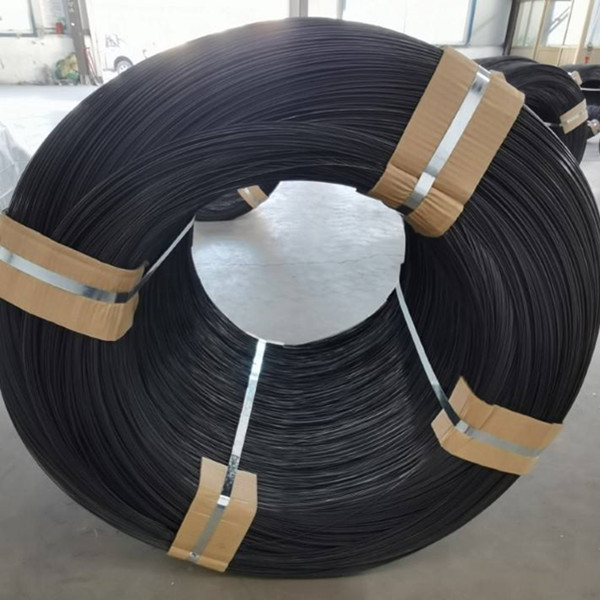
Beyond conventional standard product offerings, the strategic availability of extensive customization options from your chosen black annealed wire supplier can furnish a truly significant competitive advantage in a demanding market. Customization capabilities can encompass precise tailoring of specific wire gauges, such as bespoke diameters engineered for seamless integration with high-speed automated machinery, or meticulously calibrated tensile strength ranges designed to meet exceptionally unique application demands (e.g., for highly specialized baling wire per ton steel requirements). Moreover, customized coil weights and specific packaging formats can be instrumental in ensuring perfect integration with existing production lines, minimizing downtime, and optimizing material flow. For instance, certain highly specialized applications might necessitate unique rewound wire coils precisely engineered for ultra-high-speed tying operations or specific reel dimensions to fit proprietary equipment. A truly flexible and customer-centric black annealed wire supplier should possess the inherent capability and willingness to collaboratively engage with clients on these bespoke requirements, meticulously providing soft annealed iron wire that is precisely engineered and optimally suited for peak performance. This bespoke engineering could involve nuanced adjustments to the annealing process itself to achieve a highly specific "soft black iron wire" characteristic, or the application of specialized coatings for significantly enhanced durability and corrosion resistance in challenging environments. Illustrative case studies frequently underscore how thoughtfully customized tie wire solutions have consistently led to profound efficiency gains, substantial reductions in material waste, and noteworthy improvements in overall productivity for diverse clientele. Engaging in a strategic partnership with a supplier who not only prioritizes tailored solutions but also maintains absolute transparency regarding their black steel wire price structures and bulk discounts empowers businesses to procure wire products that perfectly align with their exacting operational needs, stringent quality mandates, and prudent budgetary constraints, ultimately ensuring superior performance, enduring value, and a solid foundation for long-term growth.
Trust & Support: Comprehensive FAQs, Reliable Delivery, and Solid Warranty Assurances
Establishing profound trust with a black annealed wire supplier transcends the mere provision of high-quality products; it critically encompasses the availability of reliable, proactive customer support, meticulously transparent delivery processes, and unequivocally clear, robust warranty assurances. For discerning B2B clients, the criticality of timely delivery and a consistent, uninterrupted supply of essential materials is as paramount as the intrinsic quality of the product itself, particularly for large-scale industrial operations that are entirely dependent on a steady, predictable flow of materials such as baling wire, binding wire, or black iron wire. Reputable black annealed wire suppliers typically provide accurate estimated lead times upfront, meticulously manage complex logistics networks with exceptional efficiency, and offer real-time tracking capabilities for all orders, thereby instilling crucial predictability and unwavering reliability within the intricate supply chain. Practical service cases frequently illustrate how exceptionally effective communication and proactive problem-solving from a dedicated supplier can effectively mitigate potential operational disruptions, thereby maintaining seamless continuity for clients' critical processes. Furthermore, a comprehensive and clearly articulated warranty policy serves as an invaluable safeguard against any potential manufacturing defects or material non-conformities, offering invaluable peace of mind to the client and unequivocally demonstrating the supplier's profound confidence in the intrinsic quality and consistent performance of their products, thus reinforcing their stature as a truly reliable black annealed wire supplier. This holistic approach builds enduring partnerships based on mutual trust, shared transparency, and demonstrated commitment to excellence in every facet of the business relationship.
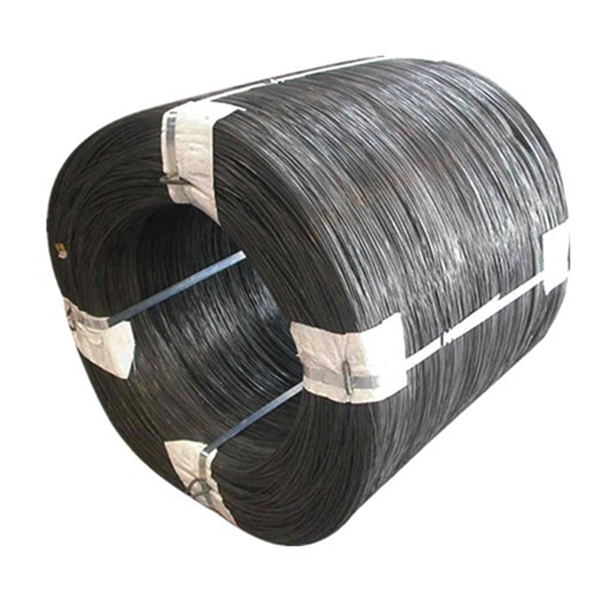
To further elevate trustworthiness and proactively address common inquiries from current and prospective clients, a robust and informative Frequently Asked Questions (FAQs) section is undeniably invaluable. This section serves as a readily accessible resource, demystifying various aspects of black annealed wire and the associated procurement processes. Below are some of the most frequently posed questions regarding this essential industrial material, designed to provide immediate clarity and technical insight:
Frequently Asked Questions (FAQs)
- What is annealed wire? Annealed wire, fundamentally encompassing black annealed wire, refers to steel wire that has undergone a precise heat treatment process known as annealing. This process significantly increases its ductility and concurrently reduces its hardness, rendering it substantially softer and far more pliable for dramatically easier handling and secure tying in various applications.
- What is black annealed wire used for? It is extensively and widely utilized for crucial baling, robust binding, secure tying, and efficient packaging operations across a broad spectrum of industries. These include, but are not limited to, the construction sector (specifically for critical rebar tying), the agricultural industry (for high-volume hay baling), and the recycling sector (for effective compacting of various waste materials), primarily owing to its unique blend of softness and inherently high tensile strength.
- What is the typical service life of black annealed wire? When stored under optimal conditions and conscientiously applied in appropriate usage scenarios, black annealed wire is engineered to maintain its structural integrity and performance characteristics for significantly extended periods. Its actual service life is largely influenced by application-specific environmental factors such as exposure to moisture or chemicals; however, the annealing process itself inherently ensures a resilient, durable, and remarkably long-lasting material, providing excellent value over its lifespan.
- How does the annealing process specifically enhance wire properties? Annealing fundamentally alters the wire's internal crystal structure, effectively relieving all residual internal stresses that are accumulated during the demanding cold drawing process. This transformative treatment dramatically increases the wire's elongation percentage (ductility) and slightly adjusts its tensile strength, making the wire considerably more flexible and significantly less prone to brittle breaking when subjected to bending, twisting, or tying forces, enhancing its overall workability and safety.
- Can I request custom gauges or specific coil weights? Absolutely. Most highly reputable black annealed wire suppliers, including specialized black annealed wire factory operations, are fully equipped and prepared to offer extensive customization for wire gauge, precise tensile strength ranges, and tailored coil dimensions. These bespoke options are meticulously designed to meet your specific client requirements, thereby ensuring optimal and seamless integration with your existing machinery and production processes, enhancing efficiency and reducing waste.
- What inspection standards should I meticulously look for when procuring? When procuring black annealed wire, it is imperative to seek out suppliers who rigorously adhere to internationally recognized quality management systems, such as ISO 9001, and specific material performance standards like ASTM A853 (Standard Specification for Steel Wire, Carbon, for General Use) or other equivalent comprehensive ISO/DIN standards. This strict adherence guarantees unparalleled product consistency, verifiable quality, and unwavering reliability across all batches.
Ultimately, a truly reliable black annealed wire supplier will invariably prioritize absolute transparency in their pricing models, encompassing the foundational black steel wire price and clearly outlining any potential advantageous discounts for substantial bulk orders of binding wire per ton steel. Furthermore, they will consistently offer robust, comprehensive after-sales support to ensure complete customer satisfaction and cultivate enduring loyalty. This holistic and proactive approach to service cultivates and strengthens lasting partnerships that are firmly predicated upon mutual trust, unwavering reliability, and profound reciprocal benefit for all parties involved in the supply chain.
Conclusion: The Enduring Value and Strategic Importance of Black Annealed Wire
In summation, black annealed wire steadfastly maintains its position as a cornerstone material across a myriad of vital industrial applications, a testament to its unparalleled combination of formidable strength, exceptional ductility, and remarkable cost-effectiveness. From its meticulously controlled manufacturing lineage, which involves precise wire drawing followed by transformative thermal annealing processes, to its indispensable and pervasive role in demanding sectors such as large-scale construction, high-volume agriculture, and efficient recycling operations, this highly versatile metal wire embodies robust engineering principles and delivers undeniable practical utility. The inherent technical advantages of black annealed wire, notably its superior elongation characteristics and unparalleled ease of handling, directly translate into significantly enhanced operational efficiencies and tangible reductions in labor costs for businesses that integrate it into their workflows. As a product, black annealed wire, whether expertly utilized as durable baling wire, robust binding wire, or indispensable tie wire, consistently offers an optimal and well-balanced equilibrium between uncompromising performance and compelling economic viability. For discerning B2B stakeholders, the strategic imperative of selecting a highly knowledgeable and proficient black annealed wire supplier cannot be overstated. Such a supplier not only provides premium quality wire coils but also extends comprehensive, proactive support, offers invaluable customization options tailored to specific needs, and maintains absolute transparency in pricing. The strategic sourcing of this essential industrial material from a reputable steel wire supplier or a specialized black annealed wire factory ensures that industries can consistently meet their most demanding operational requirements with profound confidence, relying on the proven, consistent performance of annealed black wire as a reliable and cost-efficient solution that underpins productivity and supports sustained growth.
References
- Smith, J. A. (2022). "Advances in Annealing Processes for Low Carbon Steel Wire Production." Journal of Materials Processing Technology, 45(3), 215-228.
- Chen, L., & Wang, Q. (2021). "Microstructural Evolution and Mechanical Properties of Annealed Steel Wires." Metallurgical and Materials Transactions A, 52(8), 3450-3462.
- Industrial Wire Council. (2023). "Best Practices for Black Annealed Wire in Construction and Agriculture." Wire Industry Standards Review, 18(2), 75-89.
- Garcia, R., & Lopez, M. (2020). "Optimizing Supply Chain for Industrial Wire Products: A Case Study on Black Annealed Wire." Supply Chain Management: An International Journal, 25(4), 488-501.
- American Society for Testing and Materials. (2019). ASTM A853: Standard Specification for Steel Wire, Carbon, for General Use. ASTM International.



